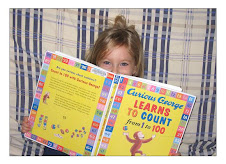
Bibliographic Information
Hopkins, Lee Bennett. CITY I LOVE. Ill. by Marcus Hall. New York, NY: harry n. abrams, inc. ISBN: 9780810983274.
Summary and Analysis
City I Love is both a visual and poetic gem. Each page acting as a stamp to a passport, the reader is taken on a world tour of fabulous cities. On the inside cover is a world map indicating which cities are covered in case a parent or teacher cannot recognize the intended focus, but most will be easily recognizable due to clever illustrations.
Each page brings a new city, images of landmarks and people, as well as memories of seasons to the reader. The illustrations introduce a new place or welcome the reader to one that he or she will recognize with a simple landmark in the background. Whether one reads the text or looks at the illustrations first it does not matter since visual elements are given equally by Hall's illustrations or Hopkins' words. Each poem is visual, rhythmic, and seems to represent each city's personality to the fullest. These poems do not need figurative language to send their messages, but act as an announcements on a street corner or as a peom read aloud in a poetry jam in the same cities they showcase. The poems trickle off the tongue ("City") or purposefully pause between words to focus on the heat or rhythm (such as the rocking feel in "Mother's Plea") which gives them a great quality. Hopkins uses great rhythm in each poem which is why this book would be a great "listening" book used in classrooms or homes to allow children to hear poetry.
Highlighted Poem
HYDRANT
I wonder
whether
pouring
roaring
gushing
rushing
water
spouting
form our
corner hydrant
flows
from here-
goes
so far-
to cause lazy Venetian gondolas
to bob and float
as easily as our homemade
wooden-popsicle-boat.
City I Love
Connections
Since there is a variety of poems, one could focus on these differences to introduce the variety of writing elements that fit the poetry category. For instance, some poems rhyme while others do not. Some seem to tell a story with lots of words that take up large portions of the page while others conclude after the 13th word. Students could talk about these differences, while focusing on the theme that these all share: the love of a city. In the end, each child or teen could write a poem on their favorite city, aspect of that city, or if they have never traveled they could write about their favorite aspect of the city in which they live.




No comments:
Post a Comment